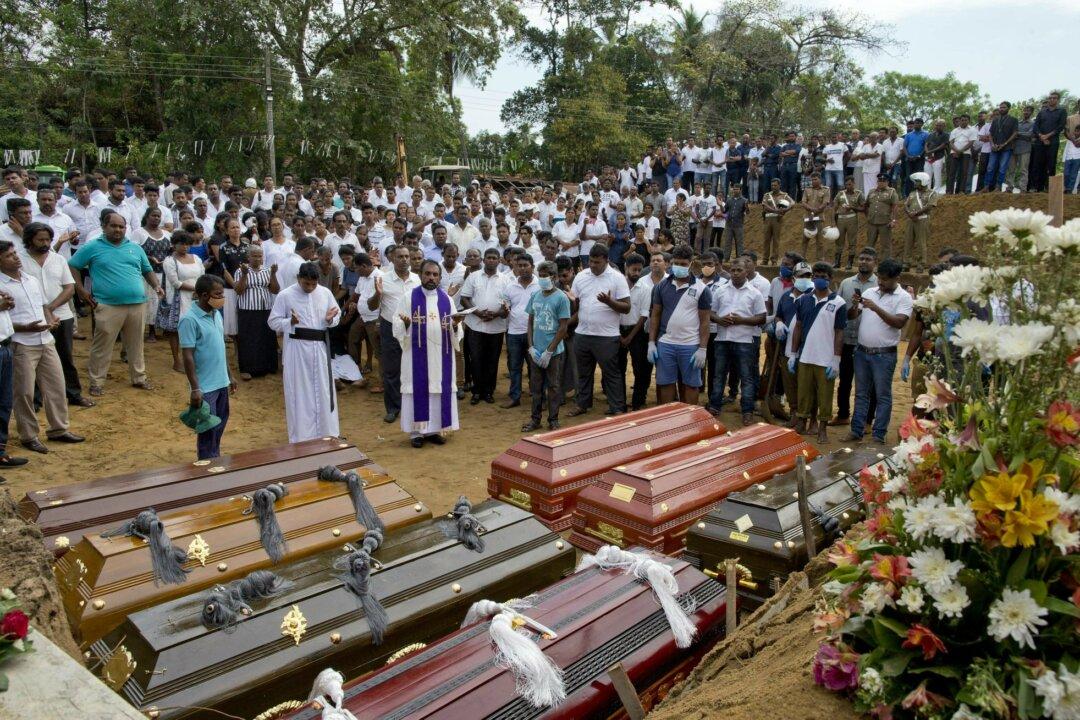COLOMBO, Sri Lanka—Sri Lanka’s president has asked for the resignations of the defense secretary and national police chief, a dramatic internal shake-up after security forces shrugged off intelligence reports warning of possible attacks before Easter bombings that killed over 350 people, the president’s office said Wednesday.
It wasn’t immediately clear who would be replacing them, but President Maithripala Sirisena said during a televised speech Tuesday that he planned to change the head of the defense forces within 24 hours.





